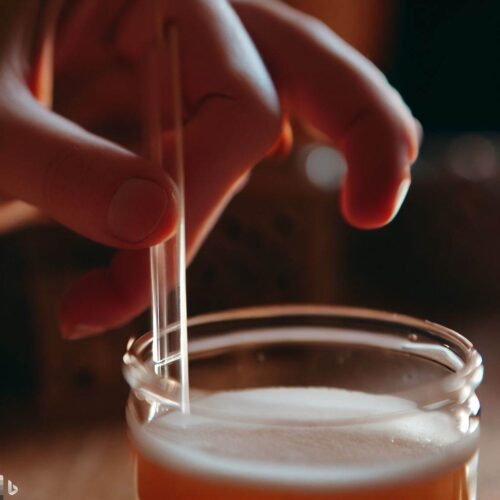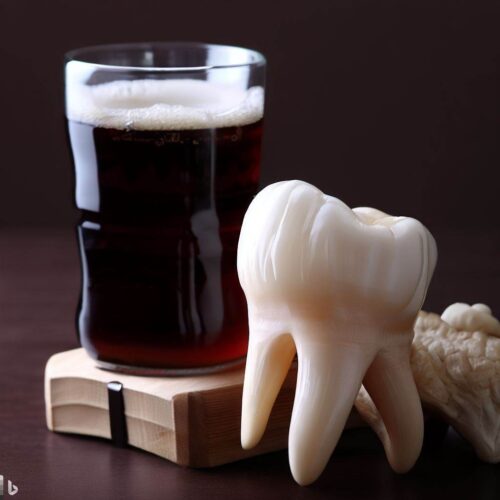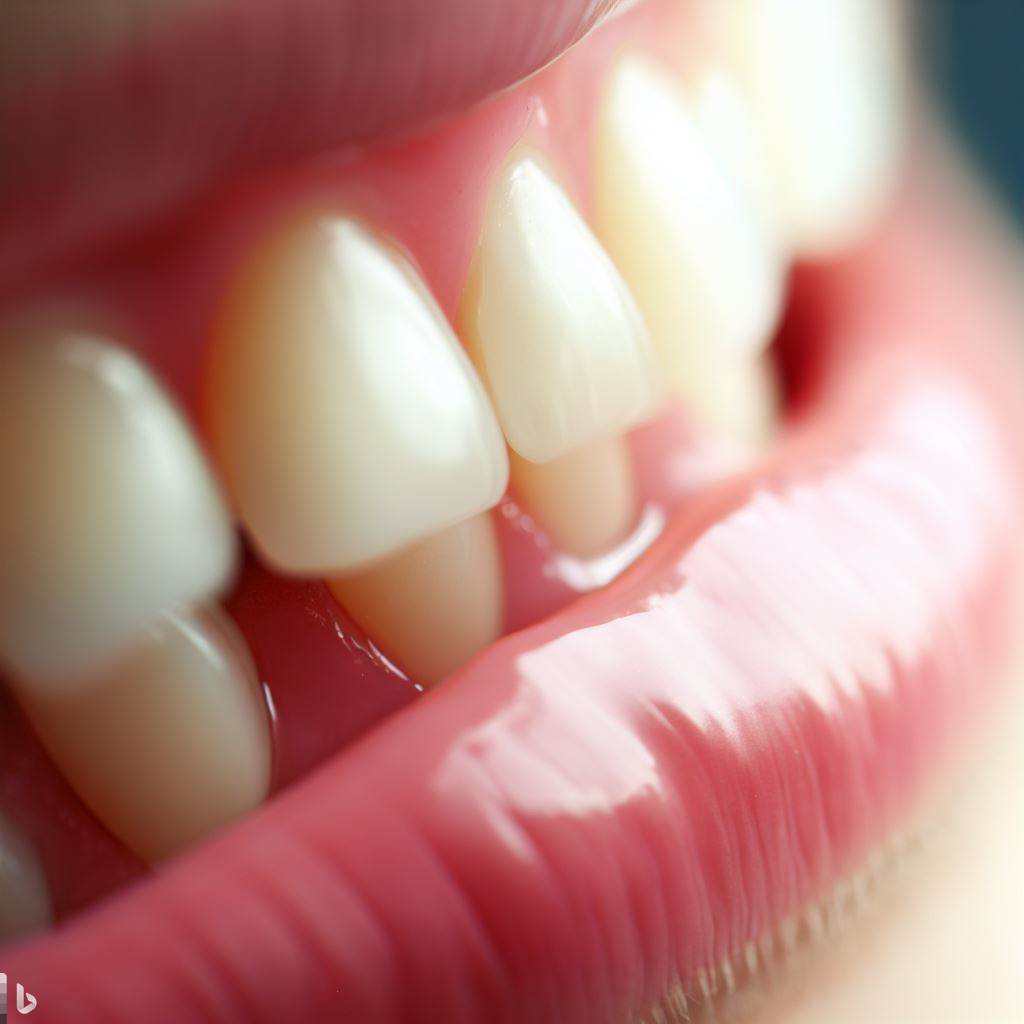Learn about the acidity of kombucha and its potential impact on tooth enamel.
Some concerns have been raised about Kombucha’s acidity and potential impact on dental health. In this article, we will explore the acidity of kombucha, its effects on tooth enamel, and provide practical tips to mitigate any potential risks. Can Kombucha Erode Tooth Enamel? Let’s dive in to find out!
I. Understanding the Acidity of Kombucha

Kombucha is a fermented tea beverage made by fermenting sweetened tea with a symbiotic culture of bacteria and yeast (SCOBY). During the fermentation process, the bacteria convert the sugar into various organic acids, including acetic acid, gluconic acid, and lactic acid. These organic acids give kombucha its characteristic tangy flavor and contribute to its potential health benefits.
II. The pH Scale and Tooth Enamel
To understand the potential effects of kombucha on tooth enamel, it’s essential to familiarize ourselves with the pH scale. The pH scale measures the acidity or alkalinity of a substance and ranges from 0 to 14. A pH of 7 is considered neutral, while values below 7 indicate acidity, and values above 7 indicate alkalinity. The lower the pH, the more acidic the substance.
Tooth enamel, the outer protective layer of our teeth, is primarily composed of minerals such as hydroxyapatite. These minerals provide strength and protect the underlying tooth structure. However, tooth enamel can be susceptible to erosion when exposed to acids, leading to dental problems such as tooth sensitivity, cavities, and discoloration.
III. pH of Kombucha and its Potential Impact

The pH of kombucha can vary depending on the brewing process, fermentation time, and specific ingredients used. On average, kombucha has a pH ranging from 2.5 to 3.5, which is moderately acidic. It is important to note that the pH level of kombucha falls within the acidic range.
When acidic substances come into contact with tooth enamel, a process called demineralization occurs. Demineralization refers to the loss of minerals from the enamel, weakening its structure. However, it is crucial to consider several factors that affect the erosive potential of an acidic beverage like kombucha.
A. Contact Time
The duration of contact between an acidic substance and tooth enamel plays a significant role in its erosive potential. Sipping on acidic beverages over an extended period exposes the teeth to acids continuously, increasing the risk of enamel erosion. In the case of kombucha, consuming it in moderation and avoiding prolonged contact with teeth can help minimize any potential risks.
B. Frequency of Consumption
Frequent consumption of acidic beverages can lead to repeated acid attacks on tooth enamel. Therefore, it is advisable to consume kombucha as part of a well-balanced diet rather than making it a habitual beverage. By limiting the frequency of exposure to acids, you can help protect your teeth from erosion.
C. Personal Oral Health

Individual variations in oral health and hygiene practices can influence the susceptibility to enamel erosion. Maintaining good oral hygiene habits, such as regular brushing with a soft-bristled toothbrush such as a Sonicare and using fluoride toothpaste, can help strengthen and protect tooth enamel. Additionally, visiting your dentist for routine check-ups and professional cleanings can address any dental concerns and ensure optimal oral health.
D. Protective Factors
Certain factors can mitigate the potential effects of acidic substances on tooth enamel. For example, consuming kombucha with meals can help neutralize the acids to some extent. Saliva, which has a natural buffering effect, can also aid in neutralizing acids and promoting remineralization of tooth enamel. Staying hydrated by drinking water alongside acidic beverages can further dilute the acids and minimize their impact.
IV. Tips for Minimizing Potential Risks
While kombucha is generally safe to consume, taking a few precautions can help minimize any potential risks to tooth enamel. Here are some practical tips to consider:

- Moderation is Key: Enjoy kombucha in moderation, incorporating it into a balanced and varied diet.
- Use a Straw: When drinking kombucha, using a straw can help reduce direct contact with tooth enamel, minimizing the risk of erosion.
- Rinse with Water: After consuming kombucha, rinse your mouth with water to help wash away any residual acids.
- Wait Before Brushing: Acidic beverages temporarily soften tooth enamel. It is advisable to wait at least 30 minutes before brushing your teeth to avoid causing mechanical damage to softened enamel.
- Practice Good Oral Hygiene: Maintain a consistent oral hygiene routine, including brushing twice a day, flossing, and using fluoride toothpaste.
V. Conclusion
While kombucha is an acidic beverage, consuming it responsibly and practicing good oral hygiene can help minimize any potential risks to tooth enamel. Enjoying kombucha in moderation, using protective measures like straws, rinsing with water, and maintaining regular dental care are essential for maintaining optimal oral health. As with any dietary consideration, it is advisable to consult with your dentist or healthcare professional if you have specific concerns or underlying dental conditions.
FAQ – Can Kombucha Erode Tooth Enamel?

Q1. Can kombucha erode tooth enamel? Yes, kombucha is acidic and can potentially erode tooth enamel when consumed excessively or with poor oral hygiene practices. However, consuming kombucha in moderation and practicing good oral care can help minimize any risks.
Q2. How can I protect my teeth when drinking kombucha? Using a straw to minimize direct contact with teeth, rinsing with water or mouthwash after consuming kombucha, and practicing good oral hygiene, such as regular brushing and flossing, can help protect your teeth.
Q3. Should I brush my teeth immediately after drinking kombucha? No, it is advisable to wait at least 30 minutes after consuming acidic beverages like kombucha before brushing your teeth. This allows the enamel to remineralize and regain its strength.
Q4. Can I still enjoy kombucha if I have sensitive teeth? If you have sensitive teeth, it is recommended to exercise caution when consuming acidic beverages like kombucha. Limiting your intake, using a straw, and consulting with your dentist can help determine what is best for your specific dental condition.
Q5. Are there any alternatives to kombucha that are less acidic? If you are concerned about the acidity of kombucha, there are alternative beverages with lower acidity levels, such as herbal teas or infused water, which can be enjoyable options for hydration.
Thanks for reading our Greek Mountain Kombucha Article on “Can Kombucha Erode Tooth Enamel?”. Please read on to find some interesting similar articles!







